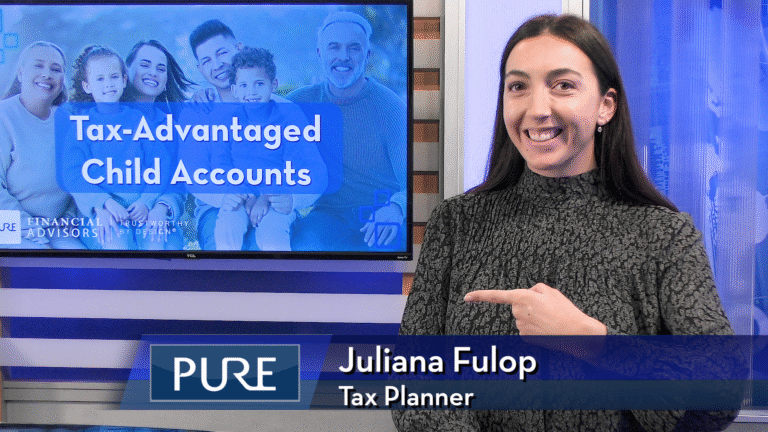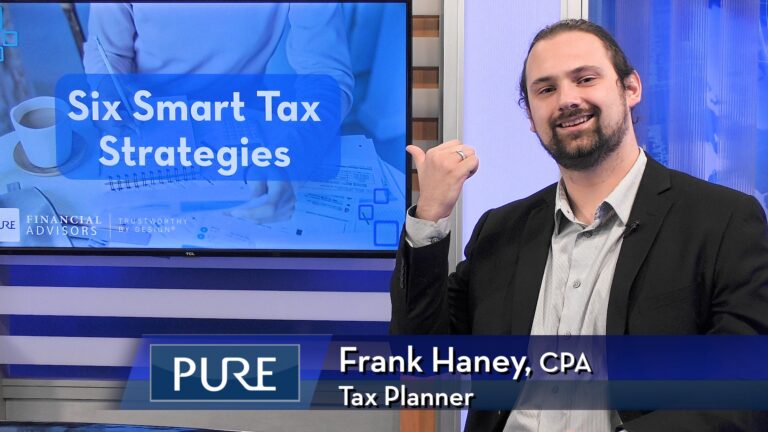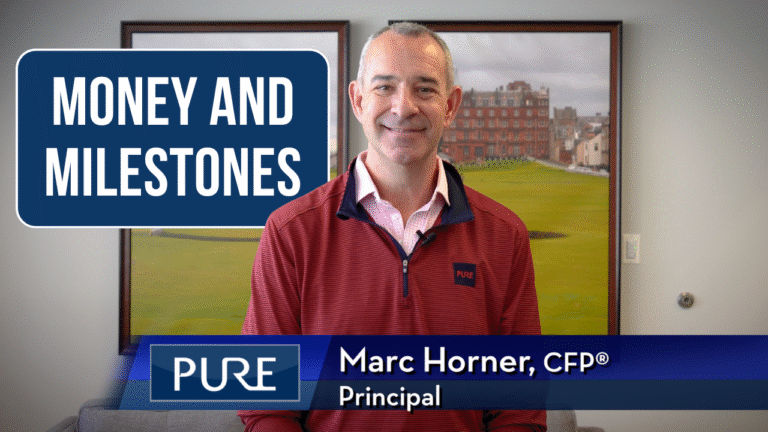When purchasing a home, it’s often said to be one of the biggest investments you’ll make. But should you use it for your retirement? And how can rental properties contribute to your retirement goals? Pure’s Financial Planner, Jeff Brecht, CFP®, AIF®, will cover four key factors to integrate real estate investments into your retirement plan.
FREE GUIDE | 10 Tips for Real Estate Investors
Transcript
When you buy a home people often remind you it could be the biggest investment you’ll ever make, but should you use that investment to help fund your retirement? What about rental properties? How can you maximize their potential for your retirement? If you’re wondering how to integrate your real estate investments into your retirement or are interested in real estate investing. These tips are for you.
Finances of Real Estate: Cash-on-Cash
First, finances of real estate: cash-on-cash. Make sure that you understand the finances of real estate because, ultimately, you’re here to make money. The first thing you should calculate is the cash-on-cash percentage. Cash-on-cash is your net profits divided by your equity, for example, assume that you have $100,000 of equity in your property, your profits after all expenses are $3,000. Take $3,000/100,000 and that equals a 3% cash-on-cash percentage. Realize different areas of the country have different ratios. Texas might be around 10% and in California you’d be lucky to break even out of the gate.
Buy Rental Properties for the Cash Flow, Not the Flare
Second, buy rental properties for the cash flow not the flare. The most conservative way to invest in real estate is to buy something for cash and to collect cash flow. If you introduce leverage by acquiring a mortgage or if you’re counting on appreciation and speculation to be your return, you’re taking on more risk. In a booming market you can make more money that way, but in a down market you can also lose a lot of money. It really comes down to this: for every dollar invested in that property, how many dollars are going to come out after all of the expenses have been taken care of? As you go up the ladder in terms of price point, you don’t necessarily see a commensurate increase in the rental rate. Now there can be certain nuances to that depending on which market you’re in and where there’s demand. If you live in a place where there’s an obvious tourist attraction or if it’s right on the water or you always have a high demand for short-term high dollar vacation rentals that can be a bit of an exception. But if you’re just looking for a tenant who will be there for a few years and be a steady source of cash flow, you typically do better with a more modestly priced home. Keep in mind that the million-dollar home isn’t necessarily going to have 10 times the rent of the $100,000 home.
Minimize Taxes Through Real Estate Investing
Third, minimize taxes through real estate investing. Real estate can be a great investment and a great write off but only if your income is below $100,000 or you qualify as a real estate professional. If your income is $100,000 or less you can deduct up to $25,000 in excess rental losses. If you make between $100,000 and $150,000 then you can only use part of your losses to offset your other income. There are no real estate losses allowed when your income is above $150,000. These losses are referred to as passive losses and any unused losses will be suspended or carried forward until either you have the income on your property, or you sell your property. Being a real estate professional means you have to work at least 750 hours per year on your real estate investments, managing, buying properties etc. You also need to have spent more than half of your total professional time in that year in real property trades or businesses and you need to mark materially participate in the management of the property. If all these requirements are met, then you will be able to write off your passive income losses against other income.
Leverage: Plan Strategically.
Fourth, leverage: plan strategically. If you want to get started in real estate, you can use other people’s money to increase your returns. Consider this, if you use all cash then the property goes up 5% in value you made 5%. However, if you put 10% down and it goes up for 5% now it’s as if you made 50% because you have less invested and are now the equity. The problem is if the property goes down 10%, now you’ve lost 100% of your investment and that’s where you have to be careful with leverage. For example, when you buy properties with high leverage that means a high loan, with a $100,000 property you put 10% down, $10,000 and borrow $90,000. If the property goes down 10% and is now worth $90,000 you’ve lost 100% of your original investment. Here’s another consideration, in markets where real estate prices are falling rental rates tend to fall too. High leverage can be risky because reduced values and rental rates could mean that you can’t sell because there’s no equity and you can’t cover your rental expenses because your rental income is lower. Moral of the story, leverage can definitely work for you, but it can work against you in poor markets. When it comes to investing whether in real estate or the stock market there’s always risk and hopefully reward. If you need help in determining what investments are right for you, contact Pure today for a free financial assessment.
Subscribe to our YouTube channel.
IMPORTANT DISCLOSURES:
• Investment Advisory and Financial Planning Services are offered through Pure Financial Advisors, LLC, a Registered Investment Advisor.
• Pure Financial Advisors LLC does not offer tax or legal advice. Consult with your tax advisor or attorney regarding specific situations.
• Opinions expressed are subject to change without notice and are not intended as investment advice or to predict future performance.
• Investing involves risk including the potential loss of principal. No investment strategy can guarantee a profit or protect against loss in periods of declining values.
• All information is believed to be from reliable sources; however, we make no representation as to its completeness or accuracy.
• Intended for educational purposes only and are not intended as individualized advice or a guarantee that you will achieve a desired result. Before implementing any strategies discussed you should consult your tax and financial advisors.
CFP® – The CERTIFIED FINANCIAL PLANNER™ certification is by the Certified Financial Planner Board of Standards, Inc. To attain the right to use the CFP® designation, an individual must satisfactorily fulfill education, experience and ethics requirements as well as pass a comprehensive exam. Thirty hours of continuing education is required every two years to maintain the designation.
AIF® – Accredited Investment Fiduciary designation is administered by the Center for Fiduciary Studies fi360. To receive the AIF Designation, an individual must meet prerequisite criteria, complete a training program, and pass a comprehensive examination. Six hours of continuing education is required annually to maintain the designation.












